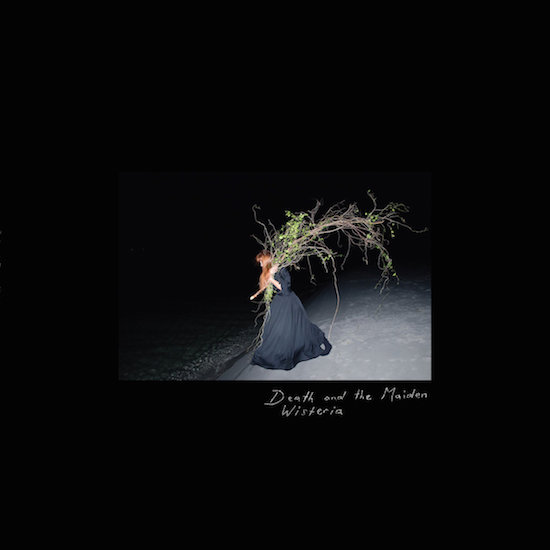Back in the mid to late 80s there was an elongated pause, up here in pre-Madchester Manchester, when a curious ethereal mist settled over ghostly dancefloors. As if wary of the gaudy hedonism that would transpire, the city seemed to take a moment. Even in The Haçienda, the music attained a clipped sparsity; precision beats drafted in from Chicago, replicated by Factory bands such as Blackpool’s Section 25 or the giddy rush of the Mike Pickering/Simon Topping experiment T-Coy. As with most embryonic moments, sounds from the past were allowed to seep in. Onto this empty shell re-emerged the dream-pop stirrings of The Cocteau Twins’ albums, Head Over Heals and Treasure. This lovely lull has been referred to – by Jon Savage – as “the birth of Baggy”. I’m not sure about that, but I am rather more fond of this ill-defined moment than the eternally irritating shape-throwers of Madchester itself.
I was strongly reminded of this lovely, lost moment this week as I soaked in Wisteria, the extraordinary second album from Death And The Maiden. Geographically, Death And The Maiden could hardly be more aloof from the pulsing heart of Mancunia. They are an unlikely trio out of Dunedin, on New Zealand’s South Island. I am informed that Dunedin is a pretty university town with a Bohemian glint and a thriving music scene. This would make perfect sense. From the outset, this is an urbanite noise blessed with an eerie glow. I do not know if DATM are even aware of The Haçienda, but as the title track kicks in, I can almost smell the rubber tiles and the equally aromatic metallic stairwells. This track is a beauty and perfectly sets out the stall. Central to DATM stands Lucinda King, whose bass and vocals dominate. The bass is the killer here; hypnotic, controlling and as moody as a Brontë-esque Yorkshire village. While underpinning King’s detached vocals, this central force is circulated by Hope Robertson’s spiralling guitars and super-snap percussion. Danny Brady’s soothing synth (and machines) fog the edges. This is already starting to soundtrack the outbreak of spring, up here in Middles towers where we feverishly grasp some kind of glimpse of summer following an eternity of chill.
The band take their name not from the Ariel Dorfman play or the subsequent 1994 Polanski flick but from an Edvard Munch painting, and it is possible to read much into that. (Paranoia chips at the edges of the sound). As the album progresses, the lovely accessibility of the title track is allowed to deliver a more sombre timbre. There is a twist here: as the lyrics soften and the vocals become increasingly ethereal, the beats actually pick up pace. So you find an album that, at once, glistens with a hearty pulse and drifts further and further into ghostly fog. It’s an irresistible paradox – and I am always fond of paradox – where the listener is balanced precariously between happy and sad. At no point on this album are you entirely disconnected from the rush and the push of the early 80s, and yet you still feel that you are leaving the 21st century.
But then by track six, ‘Shadows’, you are forced into a plodding march-beat slowly lifting synthesis and you are nowhere near The Haçienda or Madchester or any kind of of hedonistic pulse. The song builds itself around you and you don’t know whether this is a thrilling ride or a darkly scary one. Personally, I am rescued by the vicious drop-down which trickles through the heart of ‘Shadows’ and the album and the beat that builds and builds and builds and… falls!
In the end you are left floundering. This is the perfect soundtrack for the enveloping heat of a new season. Beautiful, scary and endlessly evocative. It can be whatever you want it to be.


